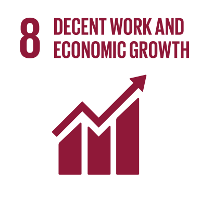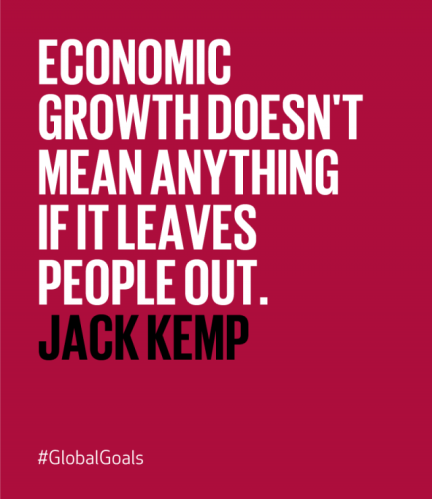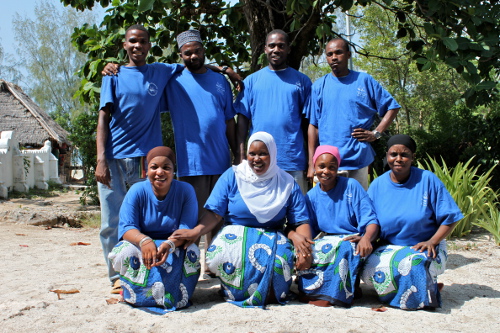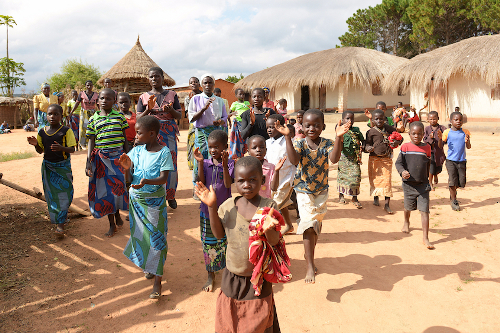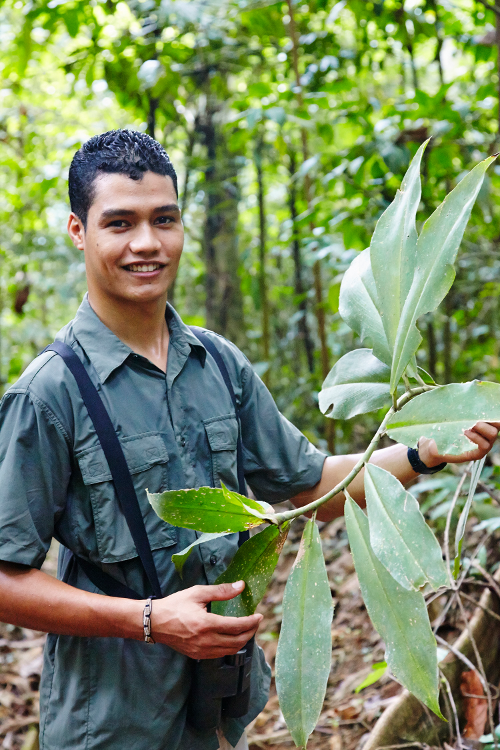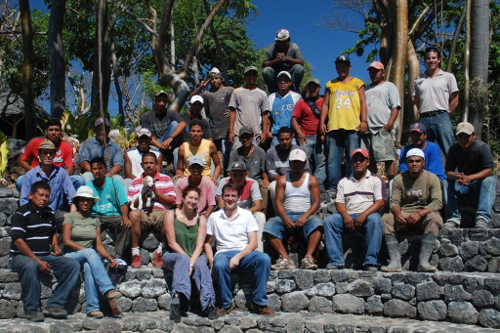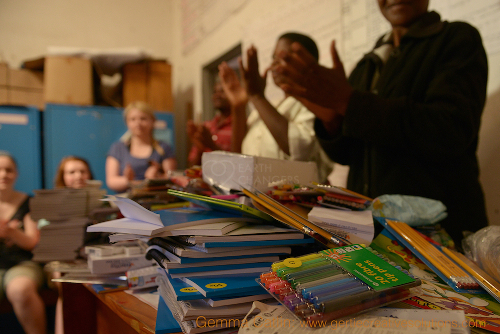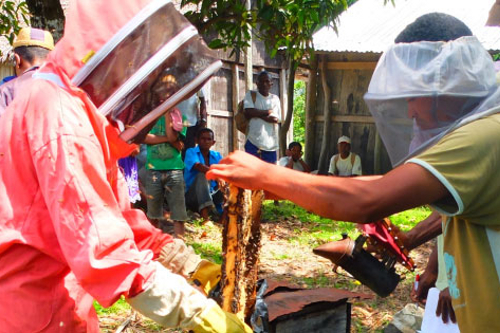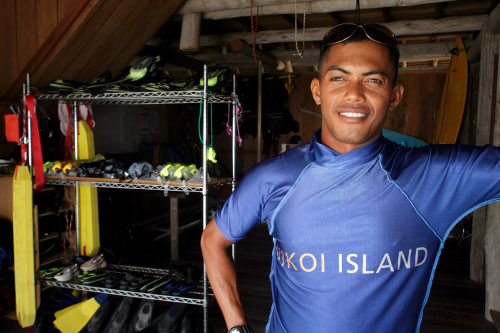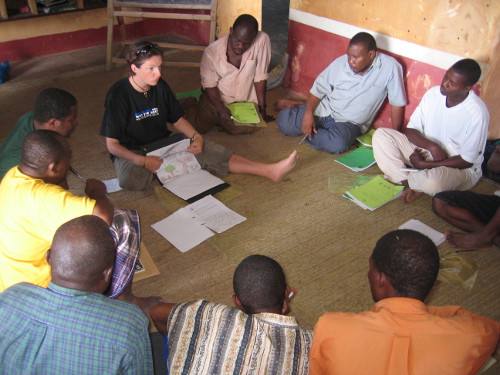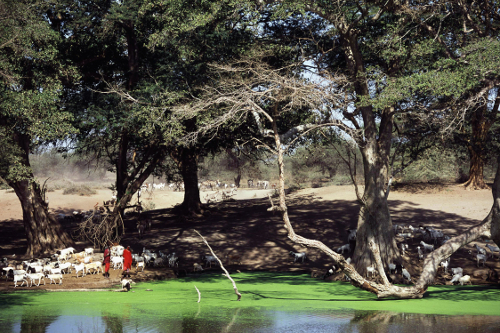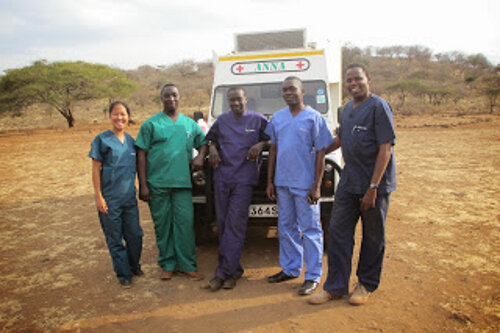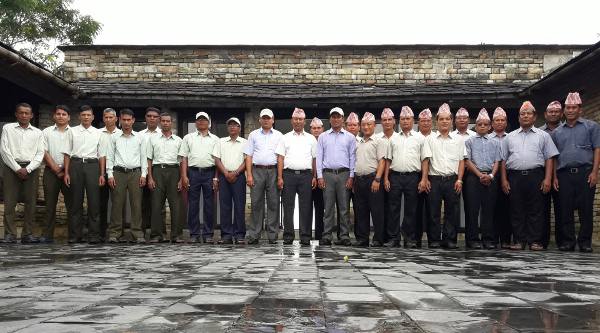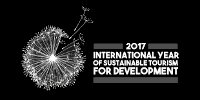Worldwide, tourism supports 10% of all jobs: 319 million (pre-Covid).
Jobs give people income and improved standards of living through food, shelter, goods and services, and dignity. In 2018, global unemployment was 172 million people, or 5%, down from 201 million in 2015, but projected to increase. As global economy growth slows, inequalities and turbulence widens, especially in areas such as Sub-Saharan Africa. At the same time, tourism usually supports 1 in 10 of all jobs in the world (319 million, WTTC, 2019 pre-Covid).
Tourism is one of the driving forces of economic growth worldwide. By giving access to decent work opportunities in the tourism sector, society –particularly youth and women – can access and benefit from increased professional development and skills.
For this reason, Goal 8 of the UN 17 Global Goals of the 2030 Agenda for Sustainable Development is:
SDG #8 “Promote sustained, inclusive and sustainable economic growth, full and productive employment and decent work for all.”
Tourism’s contribution to job creation is particularly recognised in this Global Goal’s Target 8.9 “By 2030, devise and implement policies to promote sustainable tourism that creates jobs and promotes local culture and products”.
Tourism is also a vital contributor to GDP in those most vulnerable employment regions of the world like Sub Saharan Africa, South East Asia and also Latin America, important to Target 8.1, “Sustain per capita economic growth in accordance with national circumstances and, in particular, at least 7 per cent gross domestic product growth per annum in the least developed countries”.
This is more important than ever since the global Covid pandemic, which saw a drop of 80% of the tourism market in 2020 (OECD), with a loss of approximately 53% GDP & jobs: -$4,711 billion & -174.4 million jobs (WTTC).
Progress on Sustainable Development Goal 8 Decent Work & Economic Growth
1.5% GDP per capita in 2019 slowed economic growth from 2% GDP per capita, 2010-2018 (pre-Covid)
4.8% in 2019, 4.5% Real GDP growth rate for Least Developed Countries - fell short of target 7%.
172 million were unemployed in 2018 globally, 5%, in Northern Africa and Western Asia, 11%; particularly youth and the disabled.
61% of workers globally engaged in informal employment (2016): typically negative impacts earnings, working time & conditions, and health and safety. Widespread in agriculture (95%) vs non-agriculture (51%), sub-Saharan Africa (89% ) & Asia regions (86%).
48%: Women’s participation in the labour force vs 75% for men
23%: The global gender pay gap. Without decisive action, it will take anoteher 68 years to achieve equal pay.
1.4 % in 2019 & 1.6% in 2018: the global average output per worker, a measure of growth rate in labour productivity, has generally increased since 2000, apart from the economic downturn of 2009 (although varies somewhat by region).
The Impact of Covid on SDG 8 Decent Work & Economic Growth
The world faces the worst economic crisis since the Great Depression.
Real GDP per capita expected to decline by 4.2% in 2020 before increasing again 3.1% in 2021.
In LDCs, Real GDP per capita is expected to be 0.8% in 2020 to increase again at 4.6% in 2021.
The highest increase in unemployment since the 2nd World War is expected.
Covid 19 could cause 400 million job losses in the 2nd half of 2020.
1.6 billion people in the informal economy, 46% of the world’s workforce, may be significantly affected, due to unemployment and underemployment: income dropped approximately 60% in the first month of the crisis, up to 81% in some regions.
The crisis poses a serious threat to the occupational health and safety of workers, and may increase child labour.
Labour productivity growth may be adversely affected by the global reduction in working hours as well as recession.
Tourism faces unprecedented challenges as one of the economic sectors most affected by the COVID-19 pandemic due to the closure of borders, travel bans and lockdown measures.
Countries with the highest number of reported COVID-19 cases account for 55% of global inbound and 68% of global outbound tourism expenditure: The effects will spill over to other countries, particularly Small Island Developing States and territories heavily dependent on international tourism from affected source markets.
US$4.7 trillion value of Travel & Tourism in 2020, a loss of almost US$4.5 trillion, a staggering 49.1% drop of contribution to GDP, relative to a 3.7% GDP decline of the global economy in 2020.
5.5%: Travel & tourisms contribution to global GDP in 2020, dropped from 10.4% in 2019 due to ongoing restrictions to mobility.
69.4% decline in international visitor spending, and 45% decrease in domestic visitor spending.
62 million jobs were lost in 2020, a drop of 18.5%. The threat of job losses persists as many jobs are currently supported by government retention schemes and reduced hours, which without a full recovery of Travel & Tourism could be lost.
Challenges of SDG8, Employment & Economy
All over the world, people scrape a living. Keeping them in a cycle of poverty are multiple interlinked issues which need to be considered to break the cycle.
Livelihoods: Impacted by severe weather such as droughts and floods, facing shortages and lack of state support, shocks, trends and seasons can all be unstable and physically exhausting and affect someone’s ability to earn money.
“A livelihood comprises the capabilities, assets (including both material and social resources) and activities required for a means of living. A livelihood is sustainable when it can cope with and recover from stresses and shocks, maintain or enhance its capabilities and assets, while not undermining the natural resource base”
Equality and female empowerment: ‘Full and productive employment and decent work for all’ means including men and women, youth and the less abled, with equal pay for work of equal value. This is not only important for equality, but also greater purchasing power for groups previously unequal in the workplace, leading to economic growth in different sectors to previously:
Fair pay and employment rights: Fundamental to ending poverty but also of key importance these days to business reputation and consumer attitude.
Hunger: Working in agriculture and fishing, people struggle to make earn enough money from their subsistence farming to feed themselves and their families.
Health and Well-being: Sick days don’t exist in rural farming communities – if you can’t work, you don’t get paid and then you can’t feed your family. Then they get sick too. Very quickly, illnesses very treatable in the West can have huge repercussions for people’s health in impoverished areas: not washing hands can lead to diarrhoea; no money or access to medicine to chronic dehydration, malnutrition and even death.
Work-related disease or workplace injuries can cost also business in lost productivity and talent. A lack of employment and poor health are highly interlinked, also with lack of education and gender equality, resulting in a cycle that keeps people in poverty.
Education: Although child labour has declined by one third worldwide since 2000, there are still 168 million children affected, with more than half in hazardous work. Child labour also limits their education, which then combined can lead to increased vulnerability and poorer job prospects (ILO). Youths aged 15-24 have also been particularly hit since the start of the global crisis in 2008, with global youth unemployment at a rate of almost 13 % in 2014.
Human rights: The world needs to eradicate unsustainable unethical workplace practices: forced labour, modern slavery, human trafficking and child labour. Policies also need to be in place for health and safety to prevent workplace disease and accidents, and support safe and secure environments for all workers and labour rights.
Conservation: A livelihood is not sustainable if it undermines the natural resource base. However, conservation can prove a challenge too, at times at odds with local needs, because to protect the environment you also need to consider the people who depend on those resources on a daily basis.
Location: Alternative places can sometimes offer jobs where ‘home’ does not, so lead to urban migration. However, this may not make for sustainable cities, with infrastructure and resources unable to support a burgeoning population, nor is it sustainable for remote rural areas which face a ‘brain drain’ and risk losing their culture in the process.
Eco-Economic De-Coupling: This goal calls for ‘sustainable economic growth’, is that a contradiction? Decoupling' refers to breaking the link between "environmental bads" and "economic goods." It refers to an economy that would be able to sustain economic growth while reducing the amount of resources such as water or fossil fuels, so without and delinking corresponding increases in negative environmental impact. ‘Sustainrable economic growth’ is ‘green growth’.
What's it got to do with Tourism?
Creating decent jobs is a fundamental way tourism can generate economic value to support growth and sustainable development, linked to export revenues, enterprise and infrastructure development that provide tourism benefits to a much wider range of indirect beneficiaries. Tourism reaches into all corners of countries, enabling people throughout to be supported by the livelihoods it offers.
The UN World Tourism Organisation and World Travel and Tourism Council publish international tourism data regularly which shows how tourism has experienced continued development to become one of the largest and fastest-growing economic sectors in the world.
The economic impact of travel & tourism is (usually) huge (WTTC, 2019):
122,891,000 jobs in tourism *in 2018 (3.8% of all employment).
334 million - 10.6% - of all global jobs in 2019 supported directly, indirectly via the supply chain or induced.
1 in 4 of all new jobs created.
US$9,170 billion ($9.2 trillion) / 10.4% world GDP total contribution, includes wider impacts from investment, supply chain & induced income.
US$1.7 trillion international visitor spending (6.8% of total exports, 27.4% of global services exports) .
3.5% growth: Out-performing wider economy growth (2.5%) for 9 years, by 40% in 2019.
3rd fastest growing sector in the world, behind Information & Commmunications (4.8%) and Financial Services (3.7%) but ahead of Healthcare (3%), Retail and Wholesale (2.4%), Agriculture (2.3%), Construction (2.1%) and Manufacturing (1.7%).
Nearly half of overall Travel & Tourism’s employment is of women across the G20 women, compared with 43% employment in the economy as a whole.
A higher share of youth workers than the overall economy.
The UN World Tourism Organisation reported (2019) that travel and tourism in 2018 represented:
7% of total world exports
29% of total global service exports
Tourism is incredibly important in particular to many developing countries, ranking as the top export sector. This brings many jobs, throughout a country (compared to, for example, extractive industries where jobs are geographically intensely focused), importantly spreading the indirect benefits of tourism widely.
North America makes the largest GDP contribution through tourism, followed by North East Asia and Europe.
Pre-Covid, some of the fastest-emerging tourism destinations were also found in North East Asia, as well as Central, South and South East Asia, and the Middle East: Market share of emerging economies has been increasing and was expected to reach 57% by 2030, equivalent to over 1 billion international tourist arrivals.
However, negative events can have an adverse effect on destinations, though tourism can recover well and relatively quickly, thankfully for those whose livelihoods depend on tourism in these destinations. But it also raises alarms over negative impacts, such contributing to climate change, and dependency.
As UNWTO Secretary-General Taleb Rifai said, “As we celebrate 2017 as the International Year of Sustainable Tourism for Development, we welcome the continued development of tourism and recall that with growth comes increased responsibility to ensure tourism can contribute to sustainability in all its three pillars – economic, social and environmental. Growth is never the enemy and it is our responsibility to manage it in a sustainable manner”.
How can tourism help solve unemployment problems?
By 2029, tourism is expected to generate more than 11% of the world’s GDP and jobs, with 25% of all new jobs created in the next decade supported by tourism (WTTC).
Work opportunities in tourism, particularly for youth and women, not only provide income and livelihoods, but also increased benefits in professional development and transferable skills to help support other challenges in life.
Tourism can offer jobs in construction, hospitality, management, finance, IT, marketing, guiding, well-being, entertainment and onwards in the supply chain for décor, energy, food and beverages, linens, cleaning, florists, gardening…
Organisations can choose to do this responsibly, ethically and sustainably.
Small and medium-sized enterprises (SMEs) play a key role in job creation, providing two thirds of jobs in developing countries and up to 80% in low income countries, as well as being an important source of innovation and creativity. Access to financial services and micro-finance is key.
Community-based tourism: Supports local livelihoods, brings empowerment to local people and enables them to share benefits of tourism.
This was the reasoning behind Village Ways in India: In a beautiful part of the Indian Himalayas, where traditional life had been sustained for centuries, out-migration threatened the very existence of the beautiful stone-built villages. Now, tourism helps sustain the people, villages and culture, running alongside to support, but not displace, traditional rural livelihoods.
In Floreana in the Galapagos this means local islanders get tourism's positive, not just be affected by its negative, impacts.
Women's empowerment can also support sustainable development:
In Malawi take part in a village banking initiative which aims to empower women by offering small village financed loans and education projects.
Sustainable livelihoods: In Madagascar, “Average annual income for an agricultural household in Anosy is 686,000 Ariary (approximately £170) – among the poorest in the country” (INSTAT, 2010) and the country currently ranks 120th out of 128 countries listed on the Women’s Economic Opportunity Index (Economist Intelligence Unit, 2012)
SEED Madagascar works to develop business opportunities for local people, providing them income and skills that can be passed on to future generations.
Its Stitch Sainte Luce project, now a thriving independent business, trains women in producing and selling high quality embroidered products, language and business skills to provide a sustainable livelihood. The products take inspiration from the diverse local wildlife and environment, linking consumer demand to local desire for conservation. As a result, the women are buying better food for their families, going to the doctor more often, and sending their children to school. With true community spirit, they are also financially supporting others in the village – an average of 11 extra people per woman.
For the men, lobster fishing is core income generating activity for 80% of households. The lobster fishing project Oratsimba aims to have a positive impact on sustainable lobster stocks through No Take rules. This creates sustainable livelihoods, directly supporting 850 fishermen and impacting the lives of 4,250 people dependent on fishing income, and so helps hunger and health.
Bee-keeping training, which creates a valuable income stream, reduces pressure on natural resources, and actively supports biodiversity conservation.
Further projects for rural livelihoods can also help with health and nutrition, such as teaching the importance of hygiene, construction of latrines and sanitation, distributing fuel-efficient stoves and fruit trees.
Cultural identity can also help support and preserve livelihoods
At Nikoi Island in Indonesia, The Island Foundation has established a retail brand (Kura Kura) to help sell traditional arts and crafts, such as by the indigenous Orang Laut community.
It’s also helped establish several local businesses, such as car hire and alang-alang (ylang ylang) supplier for grass roofs, beneficial to the community, operations and guests, with financial support.
Training in tourism and associated skills to overcome livelihood challenges can also mean significant lifestyle changes:
At Nikoi Island, there is great investment in staff training, Whether it be rock climbing, scuba, sailing, windsurfing, tennis, cooking, wine, mixology, first aid and massage, its resulting high staff retention and loyalty translates to experienced staff and great guest experience.
In South Africa, Grootbos Private Nature Reserve have developed their Green Futures College offering a formal course in horticulture, guiding and hospitality since 2003, giving vocational skills to community youth to enable change to their lives: Over 300 young people have graduated, with more than 90% of graduates finding employment on completion of the course, 40% with the lodge itself. Every year, three students get the opportunity of a lifetime as they head to work at the renowned tourist attraction, the Eden Project, in Cornwall, UK.
In addition, Grootbos’ organic farm Siyakhula, meaning ‘growing the future’ provides entrepreneurship and enterprise development skills and income for women from the nearby township, as well as supporting food security.
When Chumbe Island Coral Park was set up, local fishermen’s livelihoods were integrated with illegal over-fishing and dynamite-fishing, decimating the coral and marine life, the very attraction the place. The only way to change behaviour was to ensure a win-win of sharing the benefits of marine conservation ecotourism by offering livelihoods through which they could gain more than illegal fishing, with greater longevity:
First, education was required to create awareness about and value of corals.
Then, a no-take zone of no-fishing, no-anchorage implemented: not easy for local fishermen to agree, until they witnessed the beneficial ‘spill-over effect’ of the fish nursery created on the area outside its zone. With that, they got more harvest and respected the park’s rules.
Finally, Chumbe Island trained fishermen to be guides, teaching language and on-the-job skills to help educate the fishermen on ecotourism, providing capacity building, jobs and sustainable income, with the locals becoming powerful guardians and advocates of their natural resources.
Education
Many of Earth Changers' Places appreciate the importance of supporting education in their localities, for communities to gain skills for better jobs in the future and as a long term empowerment tool. They help with construction of schools, provision of equipment, bursaries for students, and finance for teachers’ salaries, for example at Lapa Rios in Costa Rica, Jicaro Island Ecolodge in Nicaragua and through the The Maasai Wilderness Conservation Trust in Kenya. See more >
But education doesn’t just include schools and colleges for local communities.
Tiger Mountain Pokhara Lodge educate staff in sustainability and responsible tourism. They also make the important point of educating tourists not to give directly to local children, which would encourage begging and skipping school.
Conservation education is also important in areas of ecotourism, such as where human-wildlife conflict exists.
The Maasai have hundreds of years history as pastoralists, protecting their cattle by eliminating threat from wildlife. Campi ya Kanzi’s innovative ‘Wildlife Pays’ program incentivises the Maasai herders for good behaviour of not killing wildlife, by rigorously assessing and fairly compensating for claims for livestock killed, to a maximum quarterly budget, fully funded by its nightly Payment for Ecosystem Services (PES) conservation fee.
Additional local livelihood support for local communities comes through the first REDD+ Carbon Project for Maasai communities: a UN climate change mitigation program through active forest / deforestation / degradation protection.
Health livelihoods and facilities are also supported by tourism incomes:
In Kenya, MWCT supports the Maasai with employment of the only doctor and provision of the only ambulance in the area.
This enables outreach to remote areas for greater child immunisation, prenatal care, early disease detection and treatment for cancers.
Human rights
Responsible business will protect human rights in operations and supply chains, essential to a motivated workforce and good reputation.
At Tiger Mountain Pokhara Lodge, the majority of the staff formed part of the original workforce who built the lodge; They value and invest in the staff as a key asset , their employment practices far exceed any Nepali legislative requirements: with priority recruitment for locals, women and the disadvantaged; free board and lodging; monthly payments, bonus and equally shared tips.
As a consequence, 97% of the staff have been with the lodge over 8 years, of vital importance to local tone and success of the tourism product.
Links with the other Sustainable Development Goals
Livelihoods and employment are core to the major challenges the world faces, and key to travel and tourism and inter-link heavily with these other global goals:
Goal 1 - End Poverty: Decent, fairly paid, secure employment lifts people out of poverty.
Goal 2 – Zero hunger: Supporting subsistence farmers to be able to feed themselves and their families will significantly contribute to employment and income in many developing countries.
Goal 3 - Health & Well-Being: Ill health prevents people working, costing personal livelihoods and local economy.
Goal 4 – Quality education: Knowledge and skills development equip people for sustainable employment.
Goal 5 - Gender Equality: will never be achieved unless woman have equal access, rights and opportunities for work and income.
Goal 6 - Clean Water & Sanitation: Without which, ill health may result, impacting working, income and economy.
Goal 7 - Affordable & Clean Energy: can empower work places and so work where lack of energy access previously prevented.
Goal 9 - Industry, Innovation & Infrastructure: can support inclusive & sustainable economic growth, full & productive employment.
Goal 10 - Reduced inequalities: By supporting equal opportunities in employment, in recruitment, pay and promotion, businesses reduce inequalities and their implications.
Goal 11 - Sustainable Cities & Communities: require decent work and economy to sustain themselves.
Goal 12 - Responsible Production & Consumption: links to target 8.1, “endeavour to decouple economic growth from environmental degradation”.
Goal 13 - Climate Change: Economic growth will have to be "carbon neutral" to address both livelihoods and climate concerns.
Goal 14 – Life below water: Much of the human world lives around marine environments. Sustainable fisheries, aquaculture and tourism will be important to create jobs, particularly in small island developing states and the least developed countries.
Goal 15 - Life on Land: Employment and economy are vital to our wildlife: not only does it fund conservation, but it also detracts from additional poaching or other destructive or exploitative practices in which local people engage often out of economic necessity.
Goal 16 - Peace and Justice: Unemployment is strongly associated with political instability, particularly with youth. Regeneration, employment and income are vital to post-conflict situations for supporting stability, socio-economic growth and sustainable peace.
Goal 17 - Partnerships for the Goals: No one can deliver economic growth alone; partnerships enable supply chains and employment.
< Affordable & Clean Energy SDG7: Previous
